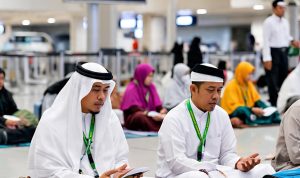ACADEMICS.web.id – The Turkish government’s recent announcement of its intention to draft a new constitution—marked by the official formation of an expert committee on 26 May 2025—constitutes a pivotal juncture in the country’s ongoing democratic transition. This initiative, declared by President Recep Tayyip Erdoğan, seeks to dismantle the enduring legacy of the 1982 Constitution, a product of the military regime following the 1980 coup, and to replace it with a civic-oriented legal framework conceived through inclusive and democratic processes.
Historically, the 1982 Constitution, enacted via referendum under the leadership of General Kenan Evren, has been characterized by provisions that institutionalized military oversight, restricted civil and political liberties, and privileged national security over participatory governance. Although subsequent amendments have attempted to reform its structure, the foundational ethos of the document has remained largely intact—anchored in authoritarian logic rather than democratic pluralism.
President Erdoğan’s assertion that Turkey requires a constitution “untainted by the shadow of military intervention” reflects a broader ambition to redefine the state’s normative and institutional architecture. The establishment of a drafting committee, chaired by Vice President Cevdet Yılmaz and composed of prominent legal experts and political figures—many of whom are affiliated with the ruling Justice and Development Party (AKP)—signals a concerted effort to institutionalize this transformation. The committee is expected to begin deliberations in early June, adopting a collective deliberative approach and engaging a spectrum of societal actors, including academics and civil society organizations.
Nonetheless, this constitutional endeavor is not devoid of political contestation. The Republican People’s Party (CHP), Turkey’s principal opposition force, has expressed its refusal to participate in the process absent assurances concerning judicial independence and the protection of civil liberties. Such resistance illustrates a fundamental concern: that procedural reforms, however well-intentioned, may be undermined by an absence of substantive guarantees for democratic governance and institutional checks and balances.
Turkey’s constitutional reform initiative invites a critical reflection on the relationship between legal-constitutional structures and democratic consolidation. The transformation of constitutional texts must not be understood merely as technical or juridical acts, but as expressions of a polity’s collective aspirations, values, and identity. As such, the drafting of a new constitution must entail a commitment to inclusive deliberation, legal accountability, and normative alignment with universal democratic principles.
Comparative experiences—including Indonesia’s own post-authoritarian constitutional reforms following the 1998 Reformasi movement—underscore the importance of anchoring legal reforms in processes of public consultation and institutional transparency. The efficacy and legitimacy of constitutional transformation hinge not solely on elite consensus, but on the extent to which reforms are embedded within a broader democratic culture and informed by pluralistic engagement.
Therefore, the central question remains: can Turkey transcend the authoritarian residues of its constitutional past and inaugurate a genuinely democratic constitutional order? The answer lies not merely in the composition or intentions of the drafting committee, but in the willingness of political actors to embrace democratic accountability, empower civil society, and institutionalize the rule of law.
As a political theorist aptly remarked, “A constitution is not merely a legal instrument; it is a nation’s moral and political compass.” Thus, Turkey’s endeavor to reconstruct its constitutional foundations will be measured not only by the content of its legal provisions but by its capacity to embody democratic ideals in both form and practice.@

Nakeisha Alea is a student of Diplomacy and International Law at Universiti Utara Malaysia. She regularly writes on politics, law, governance, and society.













